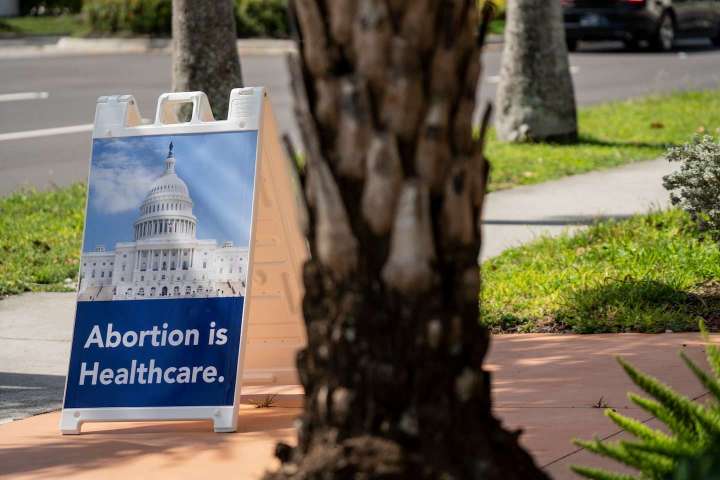In their zeal to control women’s bodies, Republicans are threatening the lives, health, well-being and privacy of women and girls across the nation. But this modern-day Inquisition is one you can do something to stop when you cast your vote in November.
The GOP put an abortion dystopia on the ballot for the midterms

Should a woman undergoing a miscarriage, with the fetus showing no cardiac activity, be sent home to suffer 48 hours of heavy bleeding and excruciating pain before doctors will perform a surgical extraction that would have been done immediately just a few months earlier?
Should a teenager and her mother be made to face criminal charges for terminating the girl’s pregnancy early in the third trimester based largely on evidence gleaned from private messages they exchanged on Facebook about abortion pills?
Do not dismiss these cases as outliers. Such horrors are likely to be the norm in GOP-controlled states following the Supreme Court’s June 24 ruling striking down Roe v. Wade. Republican state legislatures and governors are enacting draconian abortion bans that leave doctors, pharmacists, patients, judges and police officers worried that once-routine decisions about patient care and individual privacy could now be illegal. And even if the worst doesn’t come to pass frequently, extreme cases are still important stress tests for the law.
Follow Eugene Robinson‘s opinions
FollowRepublicans fought for decades to pack the high court with a majority that would eliminate the constitutional right to reproductive choice. During that time, however, a broad consensus emerged in support of the basic framework established by Roe v. Wade and Planned Parenthood v. Casey: Abortion was indeed a protected right, but it could be restricted by states as long as an “undue burden” was not imposed on that right.
That consensus was fragile. Some advocates of reproductive choice, including me, felt that Roe and Casey left the door open for states to impose too many restrictions. Many antiabortion activists found circumstances that did not allow states or the federal government to impose a total ban on the procedure to be intolerable.
Justice Samuel A. Alito Jr.’s majority opinion in Dobbs v. Jackson Women’s Health Organization, joined by four other Republican-appointed justices, gave the most radical opponents of abortion their wish. And now we’re seeing the real-world result.
The Florida girl denied permission to have an abortion, identified in court papers as Jane Doe 22-B, has a guardian, but no parents, in her life. Her abortion was blocked by a judge — who ruled she was not “sufficiently mature” to make the decision — not by a bunch of Republican politicians. She may still be able to have the procedure through further appeal or by getting the written approval of her guardian. But though Florida has high standards for bypass of its parental consent laws, legal experts told The Post that such denials are rare — or used to be, in the Roe era. And now, the 16-year-old has to worry that if she does not get permission for the abortion before her pregnancy crosses the 15-week threshold, she will be forced to bring into the world a child she says she cannot properly care for.
The Texas woman who was having a first-trimester miscarriage, identified by the New York Times only as Amanda, told the newspaper that a hospital refused to do a common procedure called a dilation and curettage and sent her home because she was not bleeding copiously enough. When Amanda had a miscarriage eight months earlier, the same hospital had not hesitated to perform that procedure. But in the interim, the GOP-controlled state legislature passed a law banning almost all abortions after six weeks of pregnancy. Amanda had to go home and suffer two days of bleeding and excruciating pain.
And in Nebraska, the teenager’s medication-induced abortion clearly took place after the 20-week deadline specified by state law. There are questions about how she and her mother disposed of the fetus. In the past, however, it was exceedingly rare for a woman to be criminally prosecuted for having an abortion at any point. And the strongest evidence used in charging the teenager and her mother came from exchanges on Facebook Messenger, which they clearly expected to be private, but which the police obtained with a search warrant.
Both the Texas and Nebraska episodes occurred before the Dobbs decision — but well after it had become apparent that Roe was almost sure to be overturned.
Congress could pass legislation to codify the Roe v. Wade guidelines and make abortion policy sane again. But that can happen only if Democrats retain control of the House and grow their majority in the Senate. For every American who might become pregnant or have a miscarriage — and for everyone who loves them — your vote matters.






